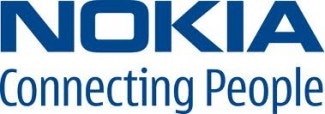Editor’s Note: Related tickers: Nokia Corporation (ADR) (NYSE:NOK), Microsoft Corporation (NASDAQ:MSFT), Apple Inc. (NASDAQ:AAPL)
Nokia’s ‘CEO Stephen Elop’ Experiment Fails (TheStreet)
It’s hard enough to turn around the fortunes of a company when it seems that rivals are flawlessly executing their missions while securing more market share. But what does that say when a company can’t seem to catch a break even as the competition is fumbling the ball? This is the question that Nokia Corporation (ADR) (NYSE:NOK) investors should be asking. But since they haven’t, I’ve taken it upon myself to press the issue on their behalf. That Nokia Corporation (ADR) (NYSE:NOK) still enjoys unmitigated loyalty from investors has been a great source of aggravation for me, especially when trying to grade the performance of the company’s CEO, Stephen Elop.

Nokia Corporation (ADR) (NYSE:NOK) down by 3.88%, Advanced Micro Devices Inc. (NYSE:AMD) (NisMagazine)
The prices of American Depository Receipts of Nokia Corporation (ADR) (NYSE:NOK) had declined by 3.88 percent to close at $3.47 per share for the end of last trading session. The ADRs of the Finland based mobile devices and services company had been trading in the range of $3.47 to $3.62 per share during the day before closing at $0.14 less than the previous day’s closing price. Nokia Corporation ADR (NYSE:NOK) operates its business through three major operating segments namely Devices & Services, NAVTEQ and Nokia Corporation (ADR) (NYSE:NOK) Siemens Networks. Devices and Services division is responsible for the company’s portfolio of mobile products and NAVTEQ provides digital map application and related location based content and services for navigation devices. Nokia Siemens Networks provides mobile and fixed network infrastructure, communications and networks service platforms, as well as professional services and business solutions, to operators and service providers.
Samsung threatens Nokia in Finland with better sales and new research center (iTechPost)
Nokia Corporation (ADR) (NYSE:NOK) has seen better times. In the early 2000s, the Finnish company used to own a sizable chunk of the feature phone market. That is no longer the case. The company could also depend on the market sanctuary provided by its home country. That is no longer the case either. And things are about to get worse for the Finnish company. Samsung has announced it will soon open a new high-tech research and development facility in Espoo, Finland – home of Nokia Corporation (ADR) (NYSE:NOK). The facility is set to open on June 13, with a focus on advanced technologies.
Nokia’s India Tax Troubles Widen (WSJ)
India has demanded that Nokia Corporation (ADR) (NYSE:NOK) -1.41% pay about 2.09 billion rupees, or nearly $38 million, of taxes that it says the Finnish handset maker avoided by wrongfully claiming an exemption given on software exports. A spokesman for Nokia said the company cooperates fully with Indian tax authorities, but doesn’t consider the country’s claims to hold any merit. The demand made in January adds to Nokia’s tax problems in India, one of the company’s largest markets. Indian tax authorities had also raided Nokia’s phone-manufacturing facility in January and ordered its local unit to pay 20.8 billion rupees of income tax and other fees. The case has yet to be resolved. Nokia contested the claims and said it has complied fully with local laws.
Microsoft goes mainstream to win phone share (TheFrontierPost)
Microsoft Corporation (NASDAQ:MSFT)‘s phone chief hates to call the new Nokia Lumia 521 cheap, but the lower-priced smartphone launching in the United States is the company’s boldest move yet to win mass market share from leaders Apple Inc. (NASDAQ:AAPL) and Samsung Electronics. The world’s largest software company has so far focused on putting its Windows Phone software into expensive, high-end devices – chiefly from Nokia Corporation (ADR) (NYSE:NOK) and HTC Corp. But the new model will go on sale at Walmart later this month at an unsubsidized price under $150, relatively cheap for a new phone running up-to-date software without a long-term contract.

